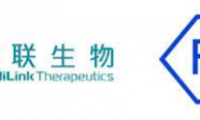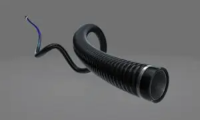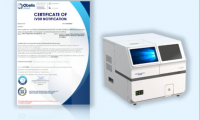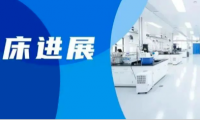-
Nalu Medical raises $65M for neurostim tech
- Source: drugdu
- 176
- January 6, 2024
-
FDA Fast Tracks Candel Therapeutics’ Novel Treatment for Pancreatic Ductal Adenocarcinoma
- Source: drugdu
- 176
- January 5, 2024
-
Novartis Returns to Voyager Therapeutics to Reach New Gene Therapy Destinations
- Source: drugdu
- 203
- January 4, 2024
-
FDA clears neurovascular aspiration, access catheters from Perfuze
- Source: drugdu
- 176
- January 2, 2024
-
Organon pays $50M to pick up rights to pair of Eli Lilly migraine meds in Europe
- Source: drugdu
- 171
- December 30, 2023
-
Fosun Diagnostics’ Fully Automated Chemiluminescence Immunoassay Analyzer F-i1000 Obtains EU IVDR Certification
- Source: drugdu
- 105
- December 29, 2023
-
BMS agrees to acquire Karuna Therapeutics for $14bn
- Source: drugdu
- 209
- December 28, 2023
-
Hengrui Biopharmaceutical’s JAK1 Inhibitor SHR0302 Approved for Clinical Use in Systemic Lupus Erythematosus
- Source: drugdu
- 173
- December 27, 2023
-
Arcutis Biotherapeutics, Inc’s Zoryve Gets FDA Approval for Seborrheic Dermatitis
- Source: drugdu
- 151
- December 26, 2023
your submission has already been received.
OK
Subscribe
Please enter a valid Email address!
Submit
The most relevant industry news & insight will be sent to you every two weeks.













